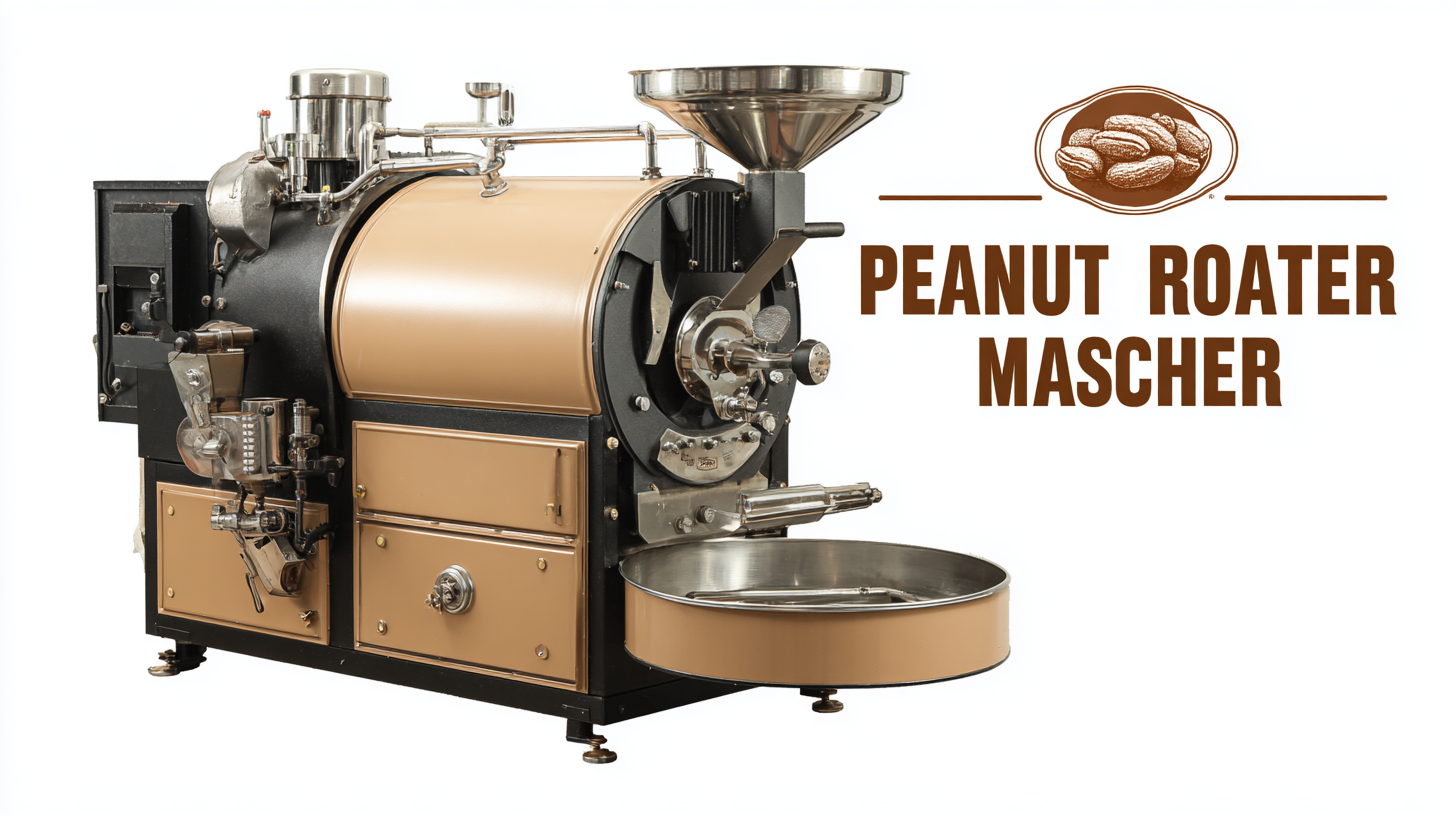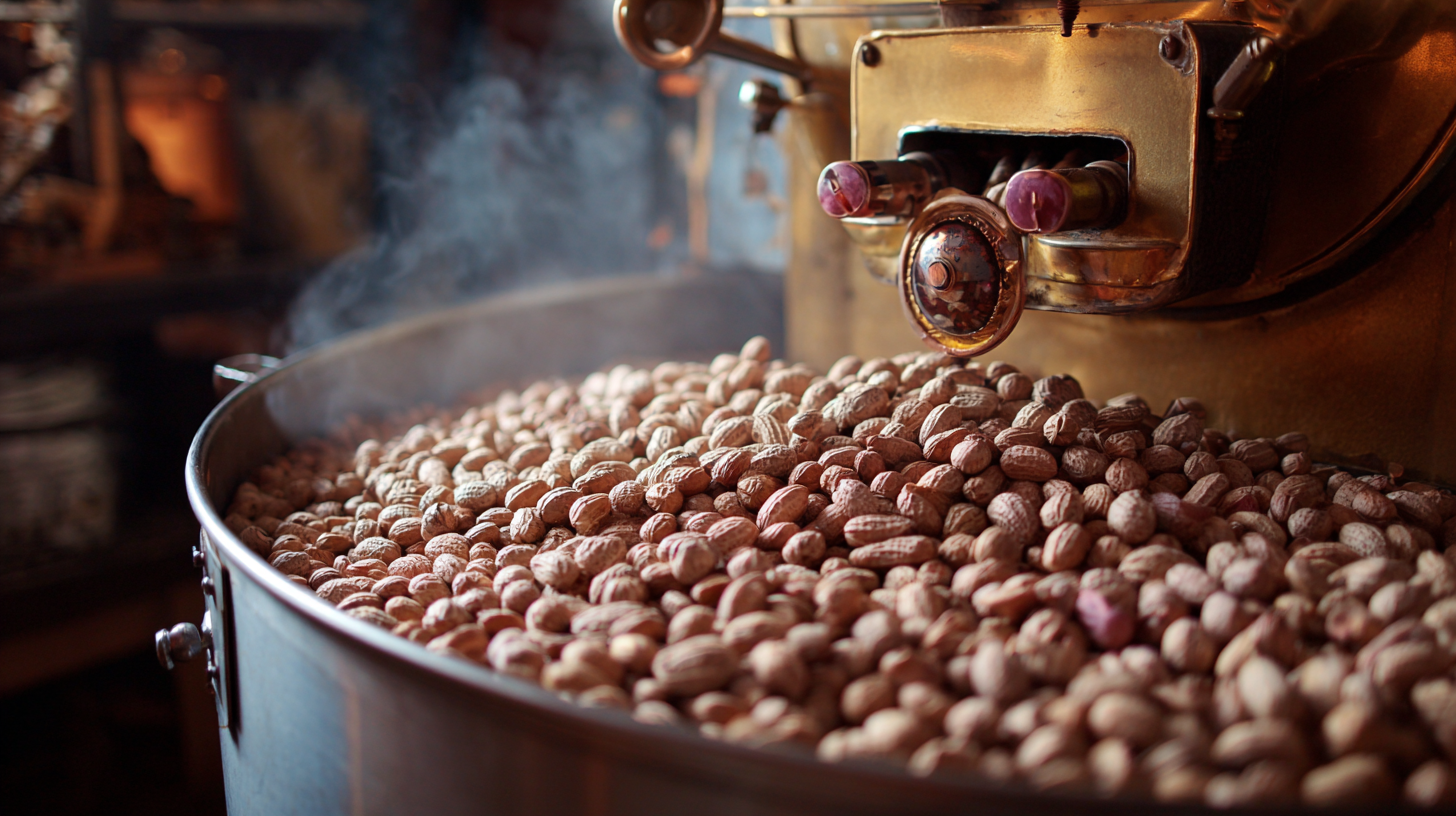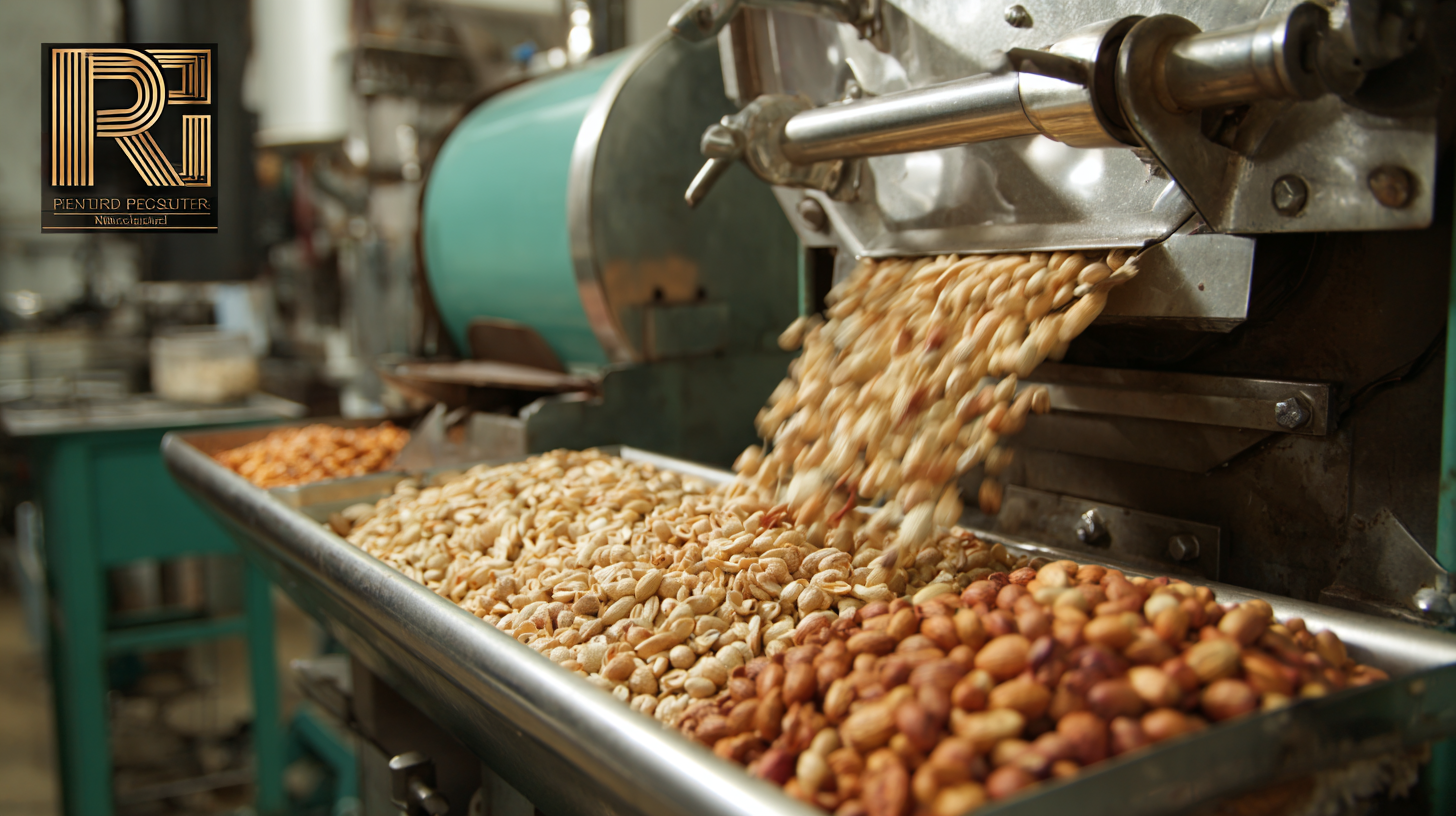Exploring the Best Alternatives to Peanut Roaster Machines for Global Buyers
As the global demand for roasted peanuts continues to soar, driven by increasing snacking trends and culinary innovations, the peanut roaster machine market has witnessed significant growth. According to a recent industry report, the global peanut roasting equipment market is projected to expand at a compound annual growth rate (CAGR) of 5.2% through 2025, highlighting a shift towards more efficient and versatile roasting solutions. However, buyers are continuously exploring alternatives to traditional peanut roaster machines that not only enhance productivity but also prioritize energy efficiency and product quality. In this blog, we will delve into some of the best alternatives available in the market for global buyers seeking to optimize their roasting processes while adapting to the dynamic demands of consumers and sustainability practices.

Key Industry Applications of Peanut Roaster Machine Alternatives
When it comes to roasting peanuts, several alternatives to traditional peanut roaster machines have emerged, catering to various industry applications. One popular option is the hot air roasting method, which uses heated air to cook peanuts evenly while minimizing oil usage. This technique is not only more health-conscious but also allows for a cleaner roasting process, making it suitable for health-focused snack manufacturers looking to produce low-fat peanut products.
Another viable alternative is the use of drum roasters, which provide an efficient way to achieve consistent roasting results. This technology is particularly beneficial for large-scale production where uniformity is crucial. The rotating drum ensures that the peanuts are evenly roasted, reducing the risk of burning and enhancing flavor profiles. Additionally, these machines can be adapted for different types of nuts and seeds, making them versatile for producers aiming to diversify their product lines.
Furthermore, electric roasters have gained popularity among small to medium-sized enterprises and home-based businesses. They offer a compact solution that is user-friendly and energy-efficient. These roasters are ideal for artisanal producers who prioritize quality and small batch sizes, allowing for greater control over the roasting process and resultant flavor variations. This adaptability makes electric roasters a fitting choice for international buyers interested in exploring artisanal nut roasting industries.
Exploring the Best Alternatives to Peanut Roaster Machines
Common Challenges Faced by Buyers in Selecting Roasting Equipment
When it comes to selecting roasting equipment, buyers around the globe face several common challenges. One major hurdle is the diversity of options available in the market. According to a report by MarketsandMarkets, the global coffee roasting equipment market is expected to reach $1.7 billion by 2026, indicating robust growth not just for coffee but for other niche roasting machinery as well. This proliferation of choices can overwhelm buyers, who may find it difficult to determine which equipment best meets their specific needs, especially when considering unique factors such as batch size and product type.
Another critical challenge is the varying quality and pricing of roasting equipment. A recent survey from IBISWorld highlighted that about 40% of buyers reported difficulty in assessing the reliability and warranty conditions of different machines. This discrepancy leads to uncertainty about long-term investments, pushing buyers to seek recommendations and reviews from peers. Moreover, understanding the nuances of energy efficiency and output quality in roasting machinery is vital. Studies indicate that energy-efficient roasters can reduce operational costs by up to 20%, making it essential for buyers to prioritize sustainability alongside performance when choosing their roasting equipment.
Exploring the Best Alternatives to Peanut Roaster Machines for Global Buyers - Common Challenges Faced by Buyers in Selecting Roasting Equipment
| Alternative Equipment | Capacity (kg/batch) | Heat Source | Material | Common Challenges |
|---|---|---|---|---|
| Drum Roaster | 30 | Gas | Stainless Steel | Heat consistency |
| Hot Air Roaster | 20 | Electric | Aluminum | Temperature control |
| Conveyor Belt Roaster | 50 | Gas/Electric | Steel | Operational space |
| Fluid Bed Roaster | 15 | Electric | Plastic/Metal | Batch size limitations |
| Batch Roaster | 25 | Gas | Cast Iron | Time management |
Innovative Solutions for Efficient Nut Roasting Process
The nut roasting industry is witnessing significant innovations aimed at enhancing efficiency in the roasting process. Traditional peanut roaster machines have been essential for many years, but as global demand for diverse nut products climbs, alternative solutions are emerging. According to a recent market analysis, the global nut processing market is projected to grow by 7% annually, pushing manufacturers to explore more efficient and sustainable roasting technologies. Systems that incorporate infrared and hot air roasting methods are gaining popularity, as they offer uniform heating and require less energy, which is vital for reducing the carbon footprint.
Moreover, these innovative solutions are not only environmentally friendly but also enhance the flavor profiles of roasted nuts. A study from the International Journal of Food Science revealed that roasting with hot air technology can preserve essential oils in nuts better than traditional methods, resulting in superior taste and texture. With the rise of consumer awareness regarding health and sustainability, manufacturers are leveraging these advancements to meet market expectations, ensuring that their products not only satisfy but also contribute positively to the ecosystem. As buyers around the globe consider their options, the shift towards efficient nut roasting solutions is becoming increasingly evident.

Comparative Analysis of Top Peanut Roasting Alternatives on the Market
When it comes to roasting peanuts, traditional peanut roaster machines have long been a staple for many businesses. However, alternative roasting methods are gaining popularity for their efficiency, cost-effectiveness, and versatility. This comparative analysis delves into some of the most effective alternatives on the market today, including oven roasting, air frying, and drum roasting.
Oven roasting is a widely accessible technique that allows users to control the roasting environment. It's as simple as spreading peanuts on a baking sheet and monitoring them closely as they roast to ensure an even color and flavor. For optimal results, consider preheating the oven to around 350°F (175°C) and stirring the peanuts every 10 minutes. This method is great for small batches and can significantly reduce upfront equipment costs.
Air fryers have also emerged as a modern solution for peanut roasting. With their ability to circulate hot air, air fryers can achieve a roasted flavor with minimal oil, making them an appealing option for health-conscious consumers. A tip for air frying peanuts is to experiment with different roasting times and temperatures to find the ideal crunchiness and flavor profile that suits your palate. Using a basket to shake the peanuts during cooking ensures even roasting and prevents burning, enhancing the overall quality of the final product.
Sustainability Considerations in Choosing Roasting Machinery Options
In recent years, sustainability has emerged as a cornerstone of the coffee industry, influencing both consumer choices and the decisions of roasters worldwide. According to industry reports, a significant 43% of coffee consumers now prioritize ethical, environmentally friendly, or socially responsible options when selecting their brews. This shift in consumer expectations drives coffee roasters to adopt more sustainable practices, particularly in roasting processes which are notoriously energy-intensive. Reducing emissions during coffee roasting not only meets consumer demand but also contributes to broader environmental goals.

To align with the sustainability trend, roasters are exploring innovative alternatives to traditional peanut roaster machines, seeking machinery that combines efficiency with reduced carbon footprints. Flexible roasting technology is becoming essential, allowing operations to adapt to both quality demands and sustainability targets. Furthermore, as the market for sustainable coffee grows, equipment manufacturers are urged to diversify their product lines to meet the evolving needs of roasters and coffee shops. By investing in sustainable roasting solutions, businesses can enhance their competitive edge while contributing to a greener future in the coffee industry.


